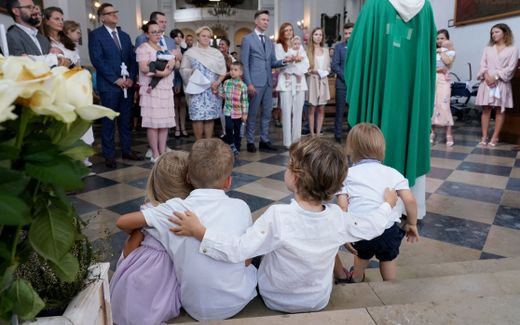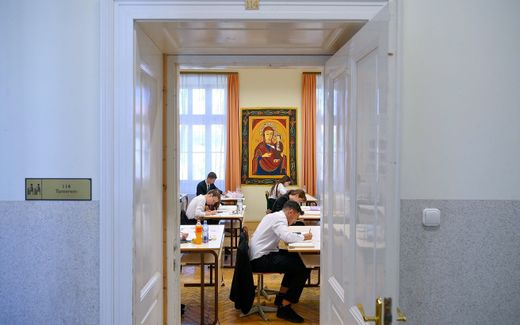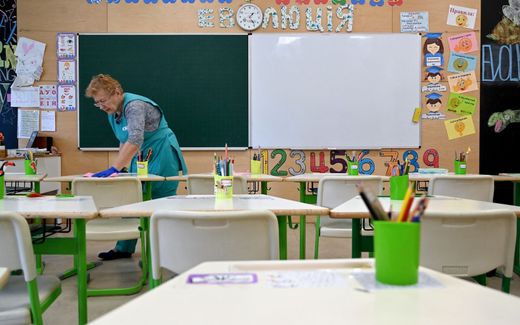Column from Germany: How Christians found a solution for the faulty education system
02-06-2023
Christian Life
Wolfgang Stock, CNE.news

Photo RD, Anton Dommerholt
Christian Life
Germany's school are in bad shape, writes Wolfgang Stock. But he is hopeful for the future.
Germany's schools are in a catastrophic mood. Tens of thousands of teachers are missing. Not just in the short term but for more than five years, maybe even ten. The development comes as no surprise, but politicians and administrators have slept through it despite many warnings from experts. The problem with German education policy is that it is extremely fragmented because of traditional German federalism and the terrible experience under the centralist Hitler dictatorship. There are 16 different school systems and 16 different daycare systems in Germany.
Each federal state is working on its own. Only in the last few years have degrees from a university in one federal state been recognised in the other federal state as entry requirements for the teaching profession.
Then Corona came along, with its tightened conditions, from which the pupils suffered the most. And in the state schools, despite large subsidies from the federal government, digitalisation had hardly progressed because of bureaucratic slowness.
Asterix
But in the German school system, it's like in every Asterix book; you get to ask the question: "All of Gaul?" Or: "In the whole of Germany, everywhere?" No! Because in Germany, there is not only the state school system, although our constitution favours that, also about 15 per cent of students visit an independent school. This is ridiculously low compared to other countries, for example, Germany's neighbour, the Netherlands. But these independent schools have grown enormously in recent years, and this trend is intensifying due to many parents' desperation about the state's failure to provide good schools.

Why am I reporting this in this column on Christian life in Europe? Because the Germanys free Protestant schools, in particular, are benefiting from it. That is why there are now almost 200 free Protestant schools, i.e. schools founded by parents, in addition to the historically grown schools of the regional Protestant churches. Nearly all are united in an umbrella organisation, the Association of Protestant Confessional Schools and Kitas. Because I am allowed to lead the small team of this association, I can report on it first-hand.
The free Protestant schools were not founded by a church but "free" from state and also church bureaucracy. They were and are founded by committed parents for their children. The German constitution not only gives parents the right to do so but has also laid down a basic right in Article 7 of the Basic Law: one can found a school with as few as four children in the first year.
Faith
The amazing thing is that these schools, although subject to the same requirements as state schools, hardly complain about a lack of teachers, contrary to the trend. Professing Christians like to come to these schools because they are allowed and expected to live their faith daily - whereas in state schools, they are no longer allowed to talk about their faith. Also, the working conditions in the free Protestant schools are much better: nice working atmosphere, modern buildings and digital equipment are often in stark contrast to state schools. However, the teachers' pay is better in the state, but the money is not decisive for many Christian teachers.
And this succeeds well in about 100 towns and cities in Germany; parents, authorities, and future employers highly appreciate these Christian schools.
So more and more parents want to found their own Christian schools in the face of the state's failure - our umbrella organisation is currently overwhelmed by requests for help in founding schools. This makes us grateful and optimistic: while almost all churches in Germany are complaining about resignations and a lack of interest, parents are taking Christian responsibility for their children and providing a Christian and good education. They give Martin Luther's and John Calvin's doctrine of the priesthood of all believers a new, modern meaning.
About the author

Wolfgang Stock was born in 1959 in Hanover, West Germany, as the child of refugees from the Eastern GDR. He studied history and international politics in Würzburg and Oxford, where he also received his doctorate. He is a board member of the German Evangelical Alliance. He worked as a journalist for many years, wrote several political books, including the first biography of Angela Merkel in 2000. He lives in Karlsruhe with his wife. They have five grown-up children and four grandchildren.
Related Articles







